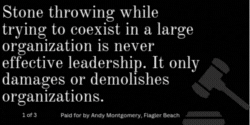[Or. pub date: Sept. 20, 2009]
You’d think reporters were a lower life form. And I’m not referring to the way bean-counters are exterminating them out of newsrooms.
Stephen Farrell is a New York Times reporter posted in Afghanistan. On Sept. 5, Taliban forces kidnapped him and his Afghan interpreter, Sultan Munadi, who’s also a journalist, while the pair was reporting on an American air strike that killed some 100 people in the north of the country, at least 30 of them civilian. Four days later, British commandos freed Farrell. Munadi and two Afghan civilians were killed during the rescue. The Times then had to defend its decision to send reporters to the bombing zone, supposedly against military advice, endangering the men and leading to the multifatality rescue. Never mind that almost every crag of Afghanistan is a war zone, and that the Pentagon isn’t about to welcome independent reporters sniffing over its war-crime scenes, as Farrell and Munadi were.
One benefit, to the military anyway, of the journalistic perversion known as “embeds” (the screening and embedding of reporters in military units) is that it makes the military look like it’s granting media access to war zones while making all other war-zone reporting look unsanctioned, therefore reckless. A public happily predisposed to trust guns over pens buys into the ruse. So we get comments like this: “The New York Times reporter who went into a war zone when told not to was reckless beyond belief,” John Wilson wrote in a characteristic response to a Times piece on the captivity. “The British soldier who has lost his life rescuing him is one too many and his worth is immeasurable compared to this idiotic reporter who has a track record of stupid behavior.”
His worth is immeasurable compared to this idiotic reporter. The remark is reminiscent of the way George Connell, a Marine colonel on a PBS panel with Peter Jennings and Mike Wallace in 1987, spoke of his disgust of the two for saying that they would, as reporters, report from enemy lines if given the chance – though Connell would order his soldiers to retrieve them if they were felled. “And that is what makes me so contemptuous of them. Marines will die going to get . . . a couple of journalists,” Connell said. As if journalists themselves never die in the line of duty. But they do. Twenty-nine of them confirmed so far this year around the globe, 17 more unconfirmed, and 742 since 1992 – 72 percent of them murdered, 18 percent of them in war zones.
What seems immeasurably obscene to me in Wilson’s or Connell’s implication is that there should be a hierarchy of worth between one life or another, as if a soldier’s life were ever more valuable than a civilian’s – reporters, lawyers and bean-counters included. If anything, it’s the reverse. The rules of war are such that soldiers put their lives at risk to protect civilians, not the other way around. Even when civilians err, as soldiers do, and fall into enemy hands.
That’s not to say that anyone should die in defense of recklessness. Rescuers often die saving men and women doing things less than critical to the human race, from mountain climbing to crab fishing in Arctic waters. It’s safe to say that putting lives at risk so a few of us can enjoy crab legs is a little less defensible than putting lives at risk so many of us can be better informed about a ruinous eight-year war. But Ferrell and Munadi weren’t being reckless. They were doing their job above and beyond what most reporters would dare do. More than that: They were the sort of thing soldiers should be glad to defend – a free press at work, which is a hell of a lot more honorable than the corruption and state-sanctioned religious and social brutality soldiers are defending in Afghanistan.
Contempt over Ferrell’s rescue, of course, isn’t happening in a vacuum. Those wonderful asylums known as newsrooms all over the country, mine among them, are getting lobotomized, and the press’ watchdog role with it, but largely to public indifference or even glee. It’s not that the press needs a savior. It’ll fend for itself. But the message underlying the anger over Ferrell’s rescue is that reporters are the problem. They’re the hindrance. They’re the nuisance. That, too, is a ruse happily fueled by the press’ usual suspects – governments large and small, corporations, the military, those nodes of power to whom prying eyes check the execution of often-dirty business. The ruse is endorsed by the same “mainstream-media”-bashing consumers who then gripe and moan about the thinness of their newspaper and the fluff of their newscast.
You can’t have it both ways. The way mainstream journalism is heading, you won’t, now that the usual suspects are becoming so effective at running the asylum.




























GMay says
Clearly you didn’t watch the entire video for context of Col George Connell remarks about rescuing journalists in combat. You citation is dreadfully out of context. Dishonestly so. The discussion was a theoretical discussion about American journalists who might allow American soldiers to be killed in an ambush because they must remain objective and just cover the story. Connell’s remarks were that the reporters would still expect to be rescued if they placed themselves in harm’s way, and yet the Marines would still come to their aid.
I’m unfamiliar with the other story you cite, but if your woeful citation of Connell’s remarks is any indication of your lack of investigative rigor, I’m sure it’s similarly misrepresentative of reality. Which is amusing given your apparent dismay at the low opinion of reporters and journalists.